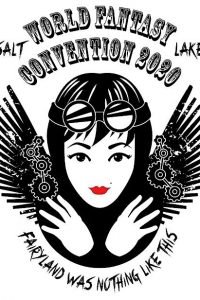Spotlight on: Ken Liu, Author

Ken Liu (http://kenliu.name) is an author and translator of speculative fiction, as well as a lawyer and programmer. His fiction has appeared in F&SF, Asimov’s, Analog, Clarkesworld, Lightspeed, and Strange Horizons, among other places. He has won a Nebula Award, a Hugo Award, a World Fantasy Award, and a Science Fiction & Fantasy Translation Award, and been nominated for the Sturgeon and the Locus Awards. He lives with his family near Boston, Massachusetts.
You’ve been publishing stories for a decade, but have become notably more prolific and successful in the past couple of years, racking up award wins and nominations. What do you think about this sudden success? Do you feel pressure, or has it boosted your confidence – or affected you in some other way?
My own sense is that everything you mentioned is related to an increase in my output around 2010 or so. To simplify somewhat, I made a conscious decision to write more and to engage in deliberate practice. The more I wrote, the more ideas I seemed to get, and that led to a nice positive dynamic.
The reaction to my work has surprised me, and I feel, by turns, gratified, elated, humbled. The experiences of the last few years taught me a lot about my own strengths and weaknesses as a writer, and I think that knowledge is going to help me produce better work.
Any plans to write a novel, or do you see yourself exclusively as a short fiction writer? If you do have novel plans, what can you tell us about them?
My first novel is an epic fantasy set in a world that my wife and I created together – we both have plans to do more with the world. Briefly, the setting is an archipelago with East Asia-inspired cultural elements. The technology is pre-steam silkpunk, and there are gods and magical creatures and other aspects of the fantastic. The plot is based on a re-imagining of the founding of the Han Dynasty. I have a draft but a lot remains to be done. I’m both nervous and excited about how it will turn out.
You’ve had a story collection published – but only in Chinese. How did that come about? Any plans for an English-language collection?
Science Fiction World, the publisher of China’s largest speculative fiction magazine, has published a large number of my stories in translation the last few years. We thought it a good idea to put all of them together into a collection to reach new readers who didn’t get to read them in the magazine. I’ve been very pleased with how it turned out, and it seems to be well received by readers in China.
Right now, my focus is on finishing the novel. So I don’t have any plans for another collection (in any language).
Tell us about your work translating Chinese fiction into English. How and why did you get started doing that? Are there any authors our readers should particularly look for in translation?
It started largely as an accident. My friend Chen Qiufan (he also uses the English name Stanley Chan), one of China’s most prominent science fiction writers, asked me to take a look at an English translation of one of his stories for quality assurance. Since I’m a big fan of his work, I wanted to make sure that his unique voice came through in the translation. I started by making some suggestions and edits, but after a while, it became clear that I really needed to redo the translation from scratch. That story, ‘‘The Fish of Lijiang’’, was eventually published in Clarkesworld and earned Chen and me a Science Fiction & Fantasy Translation Award in 2011.
I realized that although there is a lot of great science fiction and fantasy being written in Chinese, almost none of it is known in the West due to the lack of quality translations. Translating speculative fiction imposes unique challenges that are best handled by a translator who is also a writer. I was in a good position to perform this role, and so, for the last few years, I’ve been working at introducing more of China’s best speculative fiction writers to English readers. I’ve also branched out to do some literary translations, which I also find rewarding.
I just completed a translation of volume one of Liu Cixin’s SANTI trilogy (English title: The Three Body Problem). This is China’s most popular science fiction novel, and when the English edition comes out later this year, I hope readers here enjoy it.
Is there anything else you’d like our readers to know about you or your work?
Dear readers, please buy my book when it comes out – Ha, just kidding. To all the readers and writers who have encouraged me over the years and liked my work, thank you. I feel very lucky to get to tell the stories I want to tell and to find that they resonate with others. A writer really can’t ask for more.





